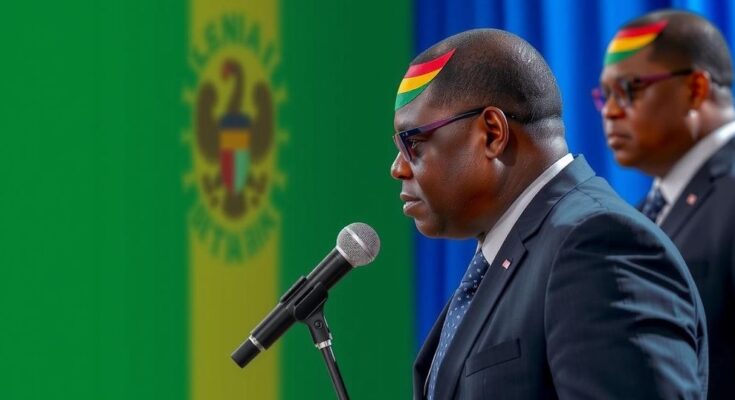Namibia’s election sees SWAPO facing new challenges following a decline in support. Political fragmentation among opposition parties potentially aids SWAPO, yet candidates like Netumbo Nandi-Ndaitwah and Panduleni Itula could shift the political balance. The outcome will likely shape Namibia’s governance and social policies moving forward.
The political landscape in Namibia is entering a critical phase as citizens head to the polls for presidential and parliamentary elections. The South West Africa People’s Organisation (SWAPO), which has governed since Namibia’s independence in 1990, is facing significant challenges following a decline in support during the previous elections. This election cycle is characterized by a fragmented opposition, which, despite its weaknesses, presents potential hurdles for SWAPO’s long-standing dominance.
SWAPO’s struggles are evidenced by the loss of its two-thirds majority in the National Assembly in 2019. This decline continued in local elections, where SWAPO lost control of major urban areas. Political analysts suggest that while regional trends indicate diminishing support for liberation parties, SWAPO’s survival hinges on the fractured state of the opposition, which currently consists of 21 competing parties. The lack of unity among these parties, attributed largely to personal rivalries rather than clear ideological differences, allows SWAPO to maintain a degree of political stability.
In this context, Netumbo Nandi-Ndaitwah, the vice president, is vying to become Namibia’s first female president. She proposes ambitious plans to tackle high unemployment rates and improve women’s rights, while also promising a significant financial investment aimed at job creation. However, these promises are viewed skeptically by some critics who regard them as unrealistic.
The Independent Patriots for Change (IPC), led by former dentist Panduleni Itula, emerges as a notable contender against SWAPO. Having attracted considerable support in the previous elections, Itula’s party is the most credible alternative to SWAPO’s dominance, although his marital ties to a British woman may present challenges given Namibia’s historical context.
The elections are likely to be rigorous as the IPC aims to solidify its status as the official opposition, a role previously dominated by SWAPO. Observers predict that the opposition parties, including the new left-wing Affirmative Repositioning party, could threaten SWAPO’s majority, necessitating potential coalitions in the future. Early voting trends suggest that SWAPO may still prevail, but analysts remain cautious and continuously monitor the evolving political mood among Namibians, both at home and abroad.
The article discusses the current political climate in Namibia as the country approaches its presidential and parliamentary elections. It highlights the challenges faced by SWAPO, the ruling party since independence, amid a backdrop of declining support for established parties across southern Africa. It examines the fragmented opposition landscape that complicates SWAPO’s electoral prospects and introduces key candidates in the electoral race, particularly the vice president, who aims to become the first female president.
In conclusion, Namibia’s upcoming elections represent a critical juncture for both SWAPO and the fragmented opposition parties. The political dynamics suggest that while SWAPO may retain significant support, it will face intensified competition, particularly from the IPC and other emerging factions. The implications of these elections may set the tone for future governance in Namibia, particularly in addressing pressing social issues such as unemployment and women’s rights.
Original Source: www.dw.com




